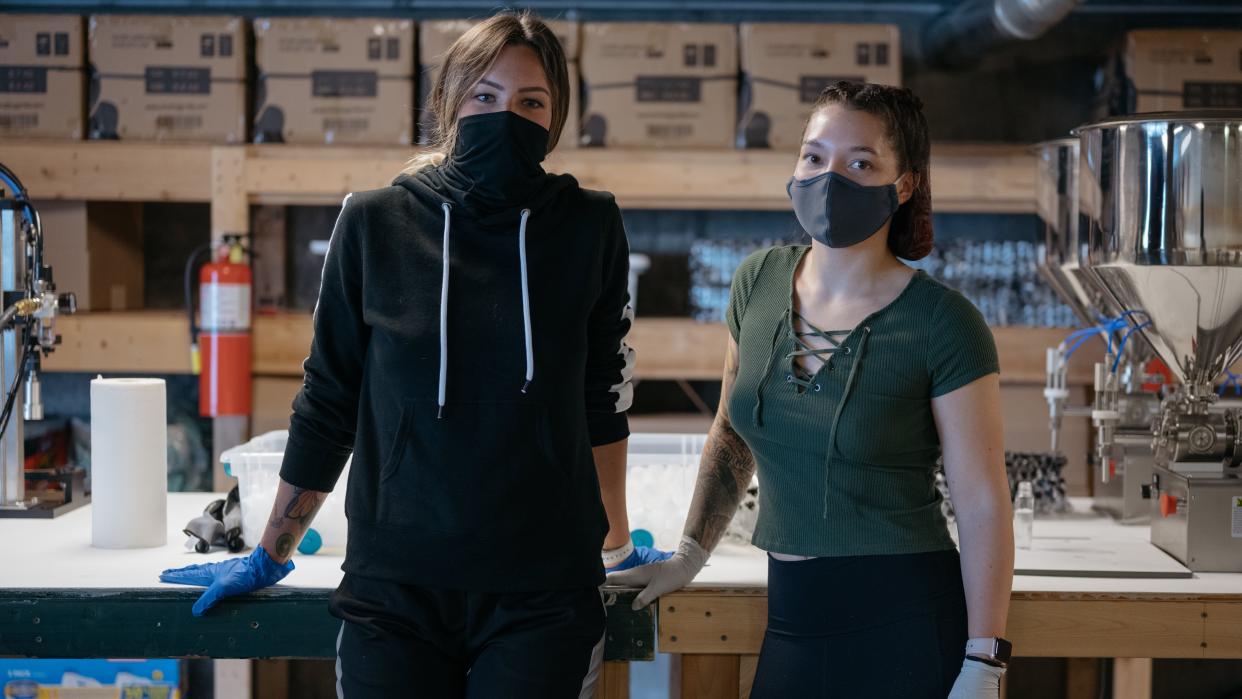As The Coronavirus Tore Through Seattle, These Sex Workers Built A Hand Sanitizer Factory

SEATTLE ― In March, the coronavirus pandemic was starting to unfold, and the Green Light Project, a nonprofit that provides cash and sanitation products to low-income sex workers, was running short on hand sanitizer.
The price had been creeping up since January. Stores ran out, then online retailers, then wholesalers. Green Light Project volunteers had been scouring the internet and texting their friends to scoop up every last ounce they could find, but they were getting increasingly desperate.
“Other than condoms and pepper spray, hand sanitizer is the most important product for staying safe while doing sex work on the streets,” said a Seattle sex worker who asked not to be identified. Many street-based sex workers don’t have access to soap and running water between clients. In a typical week, the Green Light Project handed out more than 500 single-use packets of Purell.
By mid-March, the group was down to its last 15 packets. On March 10, after another night dipping into their dwindling supply, Sherae Lascelles, the Green Light Project’s founder and director, and a group of volunteers got drinks at a dive bar on North Aurora Avenue, in Seattle’s red-light district.
“Every single person was begging us for sanitizer,” Lascelles said. Workers were worried about catching COVID-19 but couldn’t self-quarantine because they needed income. Some had run out of sanitizer days before. “We kept saying, ‘There has to be another way.’”
And so, that night, their desperation gave rise to an idea: What if we make it ourselves?
“Sex workers don’t stop needing hand sanitizer just because we can’t find it in stores,” Lascelles said. “As sex workers, losing the resources other people rely on is nothing new to us. So we just decided that if no one else was going to make it, it was up to us.”
Lascelles (who uses they/them pronouns) has been a fixture in Seattle sex worker organizing for nearly a decade. They grew up in Spokane, a...



